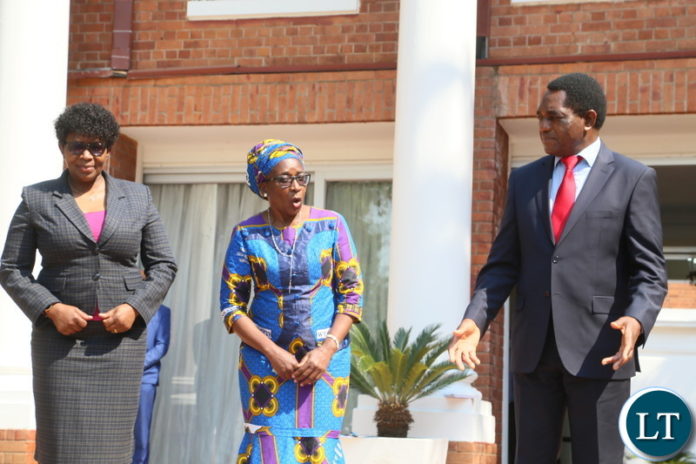
The Non-Governmental Gender Organisations’ Coordinating Council (NGOCC) has called for increased advocacy in a bid to ensure that more women have access and control to land.
NGOCC Executive Director Engwase Mwale said women’s access and control to land and other productive property is central to their economic empowerment.
Ms. Mwale observed that research has shown that women’s land rights reduce domestic violence, that women who own land are more capable of exiting violent relationships and negotiating safe sex.
When officially opening the four-day media engagement and training on women’s access and control to land in Kabwe, Ms. Mwale said NGOCC and the women’s movement in Zambia value the role of the media in advocacy work towards greater gender equality.
“As NGOCC and indeed the women’s movement we value the role of the media in our advocacy work towards greater gender equality in Zambia. Women’s access and control to land and other productive property is central to their economic empowerment. Land can serve as a base for food production and income generation, as collateral for credit and as a means of holding savings for the future. Land is also a social asset that is crucial for cultural identity, political power and participation in decision making,” Ms. Mwale said.
“Women’s equal access and control to land is a human rights issue. Women’s access and control to land and other productive resources are essential to ensuring the right to equality and to an adequate standard of living. Further, these resources help to ensure that women are able to provide for their day to day needs and those of their families and to cope with some of life’s challenges,” she said.
“Evidence shows that women’s land rights reduce domestic violence, that women who own land are more capable of exiting violent relationships and negotiating safe sex. Agricultural production and food security also increase when women are granted tenure security .Globally, gender inequality around access to productive resources, especially land, is ultimately related to women’s poverty and exclusion,” Ms. Mwale said.
She cited inadequate legal standards and cultural practices as some of the hindrances to women’s access to land and other productive resources.
“The obstacles that prevent women’s access to land and other productive resources include inadequate legal standards and or ineffective implementation at national and local levels, discriminatory cultural practices and practices at the institutional and community level. In many societies, Zambia included gender disparities with regard to land and other productive resources are linked to assumptions that men, as heads of households, control and manage land,” Ms. Mwale said.
“This implicitly reflects ideas that women are incapable of managing productive resources such as land effectively; that productive resources given to women are lost to another family in the event of marriage, divorce or male death and that men will provide for women’s financial security. Other impediments to women’s access to land and security are illiteracy, inaccessibility to information, lack of necessary capital to develop land, labour shortage above all the patriarchal tendencies and attitudes that encourages deprivation of women of all stated above,” she said.
Ms. Mwale said:”There has been found to be a positive correlation between ensuring women’s access to land and other productive resources and improved household welfare and enhanced enjoyment of a broad range of rights for women in both urban and rural areas. When women have access and control to land, they acquire power and autonomy in their families and communities as well as in their economic and political relationships. Additionally, it has been found that women’s access and control to land, especially for the rural women, tends to increase their social and political status and improve their sense of confidence and security.”
“Based on the foregoing, NGOCC is of the considered view that challenging the discriminatory practices around women’s access to land is critical to the empowerment of women and enjoyment of their right to equality. It is against this background that this media training and engagement is being held with you. The media plays an important role in changing attitudes and agenda setting,” she said.
Ms. Mwale urged the media to help in raising awareness around the need for the empowerment of women with land.
“Through the media, we need to advocate that more women have access and control of both customary and statutory land. I am informed that the objectives of the meeting are as follows; To capacitate media on land tenure systems in Zambia so as to enhance their reporting on women’s access and control to land To debunk some of the challenges and opportunities in land administration that negatively affects women’s access and control to land,” she said.


HH should have gone with these women to Europe, not those baffikala he is with.
Comments are closed.